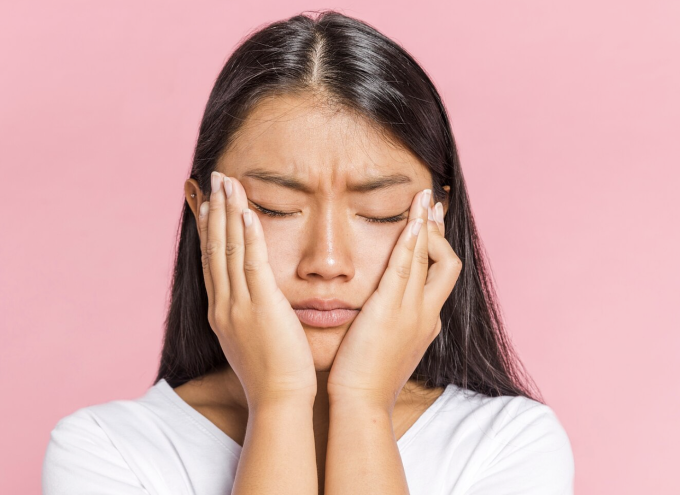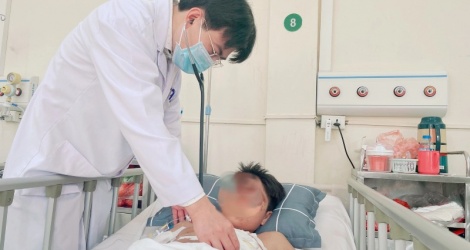Disorders of estrogen and progesterone hormones often cause menstrual disorders, weight gain, hot flashes and insomnia.
Hormonal imbalance is a condition in which the body has too much or too little of a hormone, negatively affecting health and quality of life. Hormonal imbalance often causes the following problems.
Appetite and weight gain
Weight gain is often due to unhealthy diet and lifestyle such as eating a lot of foods containing fat, starch, sugar; not exercising. However, many women who eat healthy still have belly fat due to hormonal disorders.
Decreased estrogen levels have a major impact on the hormone leptin (a hormone that controls appetite and metabolism in the body). Leptin is produced by fat tissue and plays an important role in weight regulation.
Hormonal imbalances can lead to weight gain in the form of fat storage. For example, excess cortisol and low thyroid hormone (hypothyroidism) contribute to obesity.
Irregular menstruation
Hormonal imbalance is a common cause of irregular periods. Estrogen and progesterone imbalances disrupt the ovulation cycle, which is common during puberty, pregnancy, and perimenopause.
trouble sleeping
The hormone progesterone, produced by the ovaries, helps women sleep. Low levels of this hormone make it difficult for women to sleep, causing hot flashes and night sweats.
Acne
Acne breakouts before or during your period are common, but long-term breakouts can be a symptom of hormonal problems. Excess androgens can overwork the oil glands, affecting the skin cells and surrounding hair follicles, leading to clogged pores and acne.

Hormonal disorders cause moodiness and acne. Photo: Freepik
Dry skin
Hormonal changes can cause dry skin. This can happen during menopause because the skin naturally thins and cannot hold as much moisture. Women with thyroid hormone disorders also experience this condition. A dermatologist can advise women on appropriate skin care.
Mood swings
A drop in hormones can easily lead to moodiness and sadness. Estrogen affects important brain chemicals such as serotonin, dopamine, and norepinephrine.
Hair loss
Hair becomes weak, thin, and brittle when it is not supplied with enough essential vitamins and minerals. Premenopause syndrome causes a sharp decrease in estrogen and progesterone hormone levels, leading to irregular menstruation, night sweats, weight gain, and hair loss. Women also often lose hair during pregnancy or after taking birth control pills.
Le Nguyen (According to WebMD )
| Readers ask questions about sexual health here for doctors to answer |
Source link




























































Comment (0)